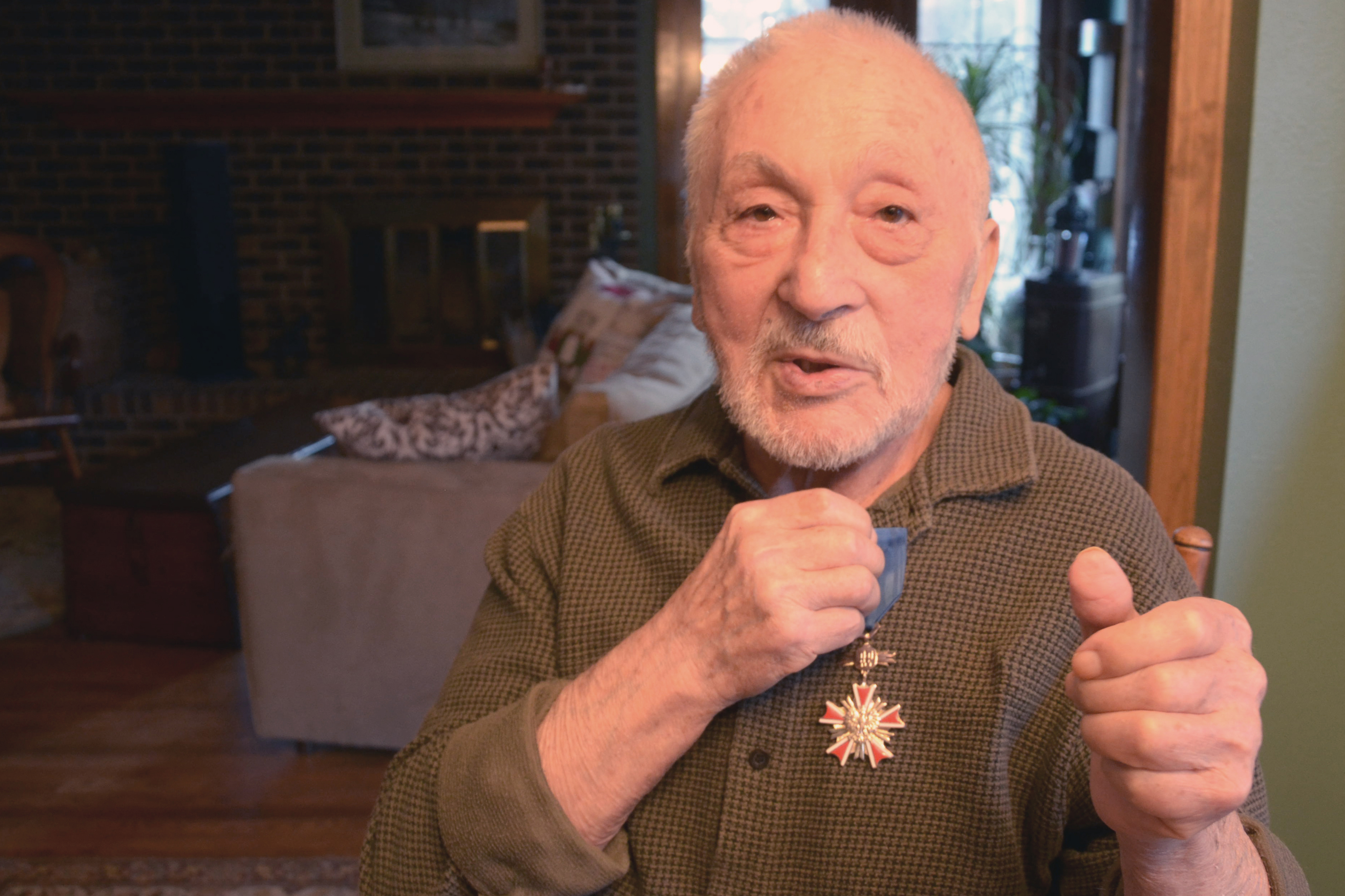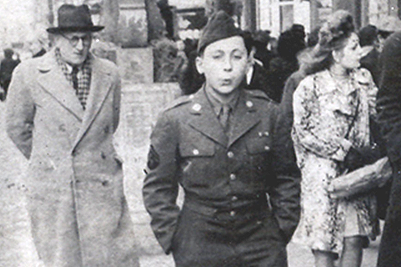
In the winter of 1939, Walter Plywaski watched armed men -- wearing swastikas -- come into his family's pharmacy. He remembers they were very tall. He was just a boy. And they were threatening his father, Maks. The men gave the family half an hour to leave... forever.
For Plywaski, who's 86, that moment was "a sudden fall from grace," his descent into the shadows of the Holocaust.

His family wound up in the Lodz Ghetto in German-occupied Poland, "the stinkiest, oldest, rottenest barbed-wire surrounded environment, with not enough food, not enough education, not enough of anything, especially not enough medication... It was designed to kill by disease."
Eventually, Walter was loaded onto a train and peered onto rolling fields he hadn't seen for a long time. The destination, though, was Auschwitz. There, Plywaski was confronted by "screams, shouts, stench of burning meat," Nazi guards yelling at people to get "Out! Out! Out!" as "two huge pillars of red and black fire" filled the sky.
There, the men were separated from the women, so Plywaski's mother stood alone in line as Plywaski, his father, and adopted brother, William, watched her for the last time. She died in a gas chamber. Later, at another camp, Plywaski watched as his father was beaten to death by a Nazi commander.
Today, Walter Plywaski lives in Boulder, as does William. He moved into town from the foothills after the 2010 Fourmile Canyon Fire destroyed his home. "Compared to the Shoah, the Holocaust, nothing is as serious. Nothing is awful." He says it gave him perspective. "Not that I wanted it," he adds.
Plywaski spoke with Colorado Matters host Ryan Warner about his life before, during, and after the Holocaust-- including how he received Poland's highest honor.








